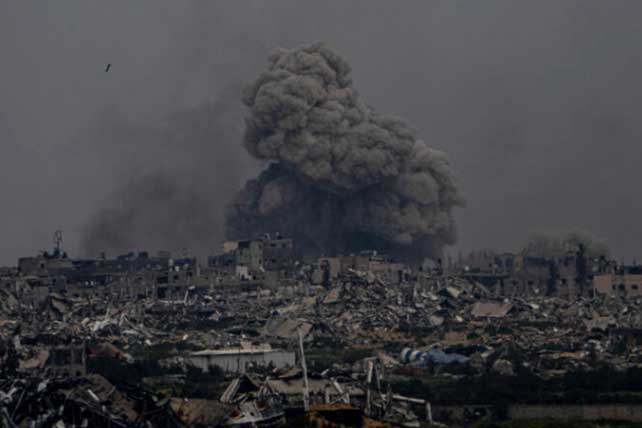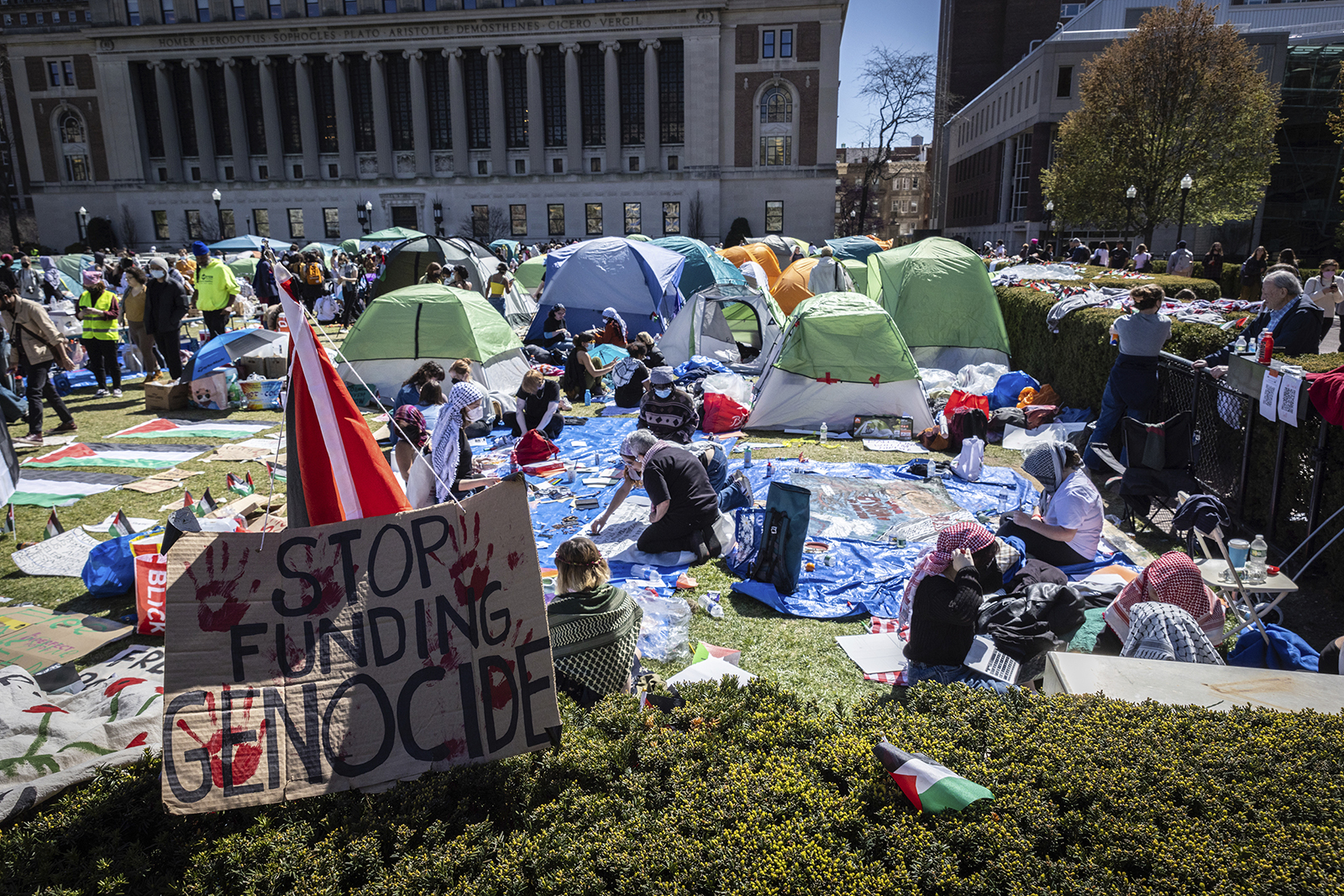Credited with being the birthplace of liberation theology, Union has been a leading institution for progressive Christian activism for decades. Dietrich Bonhoeffer, German pastor executed by the Nazi regime, was briefly resident at Union, and the influential theologian Paul Tillich taught there for two decades. The controversial academic and current presidential candidate Cornel West has been associated with Union since the 1970s.
In 2014, Union trustees voted unanimously to divest from fossil fuels after a wave of student protests. Three months later, a group of students occupied a classroom to organize their demonstrations against the killing of Michael Brown by police in Ferguson, Missouri.
Known as the “Love Hub,” the classroom became a center for students and faculty protesting Brown’s death. James Cone, a Methodist minister and theologian who is considered the founder of Black liberation theology, delivered his last lecture in the Love Hub. After inviting the entire school, Cone spoke on the horrors of police violence, expanding on ideas from his 2011 book, “The Cross and the Lynching Tree.”
“The divestment happened just before I showed up, and was swiftly overshadowed by student activism around Ferguson,” said Jorge Rodriguez, a Union alumnus who now teaches history at the school.
In 1968, when students at Columbia created encampments to protest the Vietnam War, Union opened its door to students and faculty who were suspended and expelled. Union’s then-President John Bennett sided with the protesters, agreeing to cancel classes for the rest of the school year. “After the cessation of classes, students created what they called the Free University,” Rodriguez said.
“In this moment,” Rodriguez said, “my hope is that we would see that same phenomena happen again.”
A sign is displayed at the pro-Palestinian demonstration encampment at Columbia University in New York, April 22, 2024. (AP Photo/Stefan Jeremiah)
Union is currently hosting Columbia University professors who continue to teach students penalized for protesting the war in Gaza. Jones says these students are focused on completing their work so there is no reason, apart from violating a university policy for participating in an encampment, that they should not graduate.
In a letter to Columbia students published in April, Jones called the Union campus “a safe haven” for those penalized for taking part in the protests. “As president, I have your back,” she wrote.
In the past month, as hundreds of students and other individuals have been arrested by the New York Police Department for protesting the war in Gaza, Jones said she has never seen this kind of “military action” taken from a university in all her career. “I’ve never had to face this level of escalation,” Jones said. “I fear for our country.”
This article originally appeared here.


